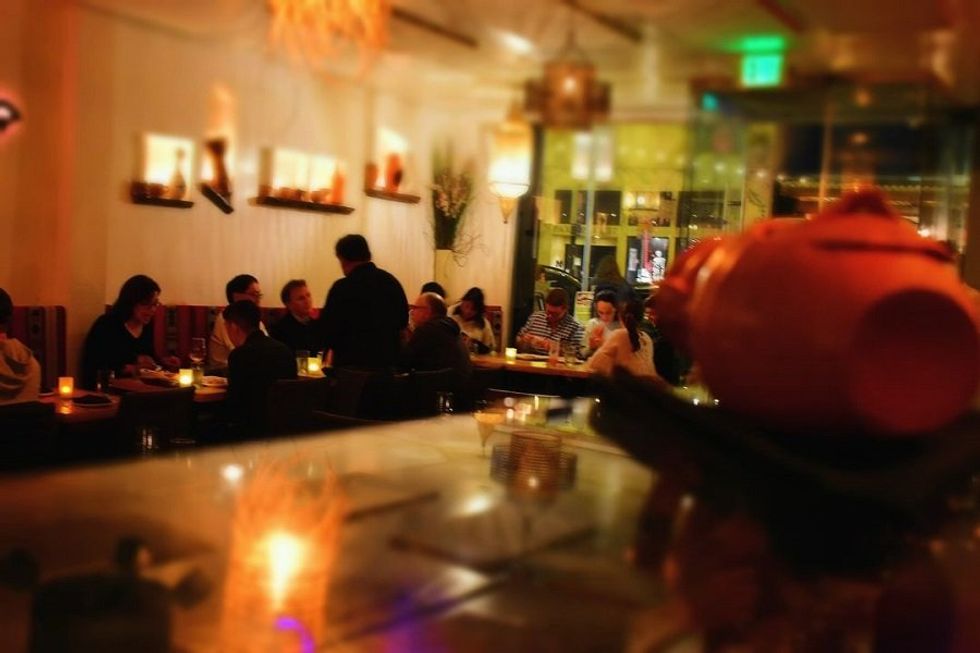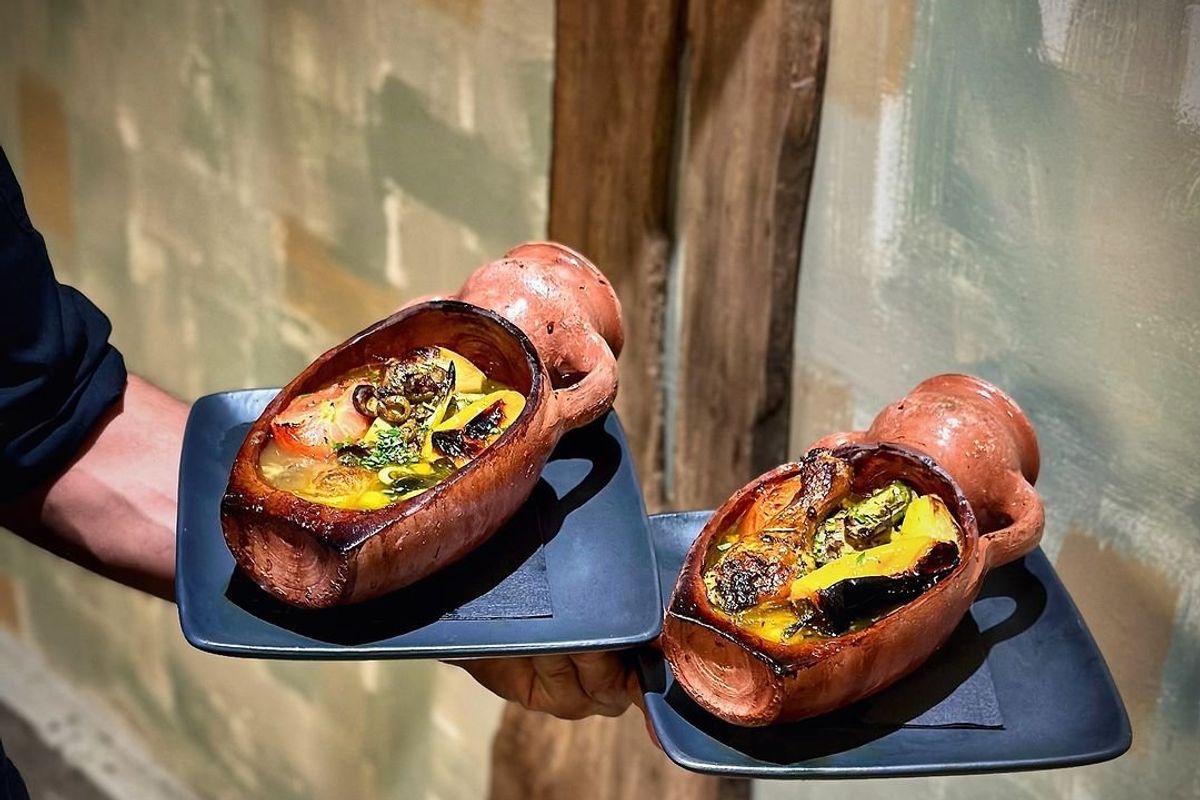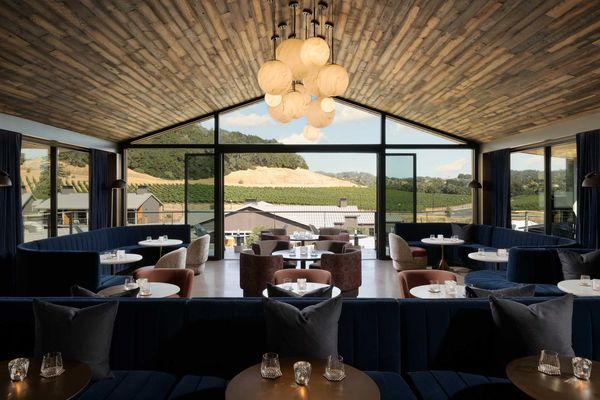Food from the Mediterranean is a familiar favorite in the Bay Area. But while the traditions of countries like Spain, Italy, and Morocco are fully represented in our restaurant landscape, others haven’t yet broken through.
Rafik Bouzidi is on a mission to make sure that Tunisia’s cuisine is the next to appear in the long-overdue spotlight.
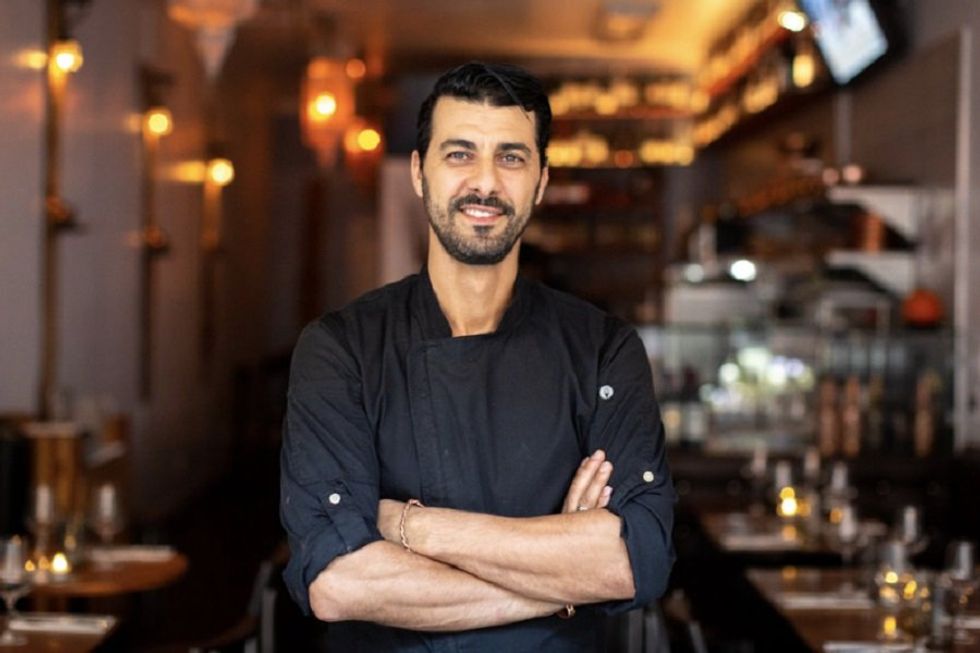
“Tunisian food is extremely attached to history,” says Bouzidi, executive chef and owner of Gola, the city’s only restaurant dedicated to Tunisian food.
Located at the crossroads of the ancient world, tiny coastal Tunisia has witnessed the rise and fall of civilizations for almost 4,000 years, and each of those cultures—from the Indigenous Berbers to the Phoenicians to the Arab Muslims to the Ottoman Empire—have left an imprint on the country’s culinary evolution.
“The Arab world called Tunisia the “Green Land” because it provided the whole Roman Empire with food and grains,” says Bouzidi. The country’s north is known for dishes that make use of that agricultural bounty while, in coastal areas and the arid southern desert, meals commonly include things like seafood and bread baked in sand (khobz el mella).
Although Tunisian and Moroccan food share some similarities, there is an essential difference between the two: heat.
“In general, Tunisian food is spicier than Moroccan food,” says Bouzidi. “Moroccan couscous, for example, is savory and sweet. Tunisian has a tomato based sauce and spice that goes up and up and up.”
That spice is the reason we know Moroccan food so much better than Tunisian in the U.S., explains Bouzidi. Moroccan food spread easily across the West because it was mild enough for the European palate when it emerged in the 1940s and ‘50s.
But after decades of global immigration, we’ve developed not just a tolerance for but an obsession with the kind of heat and spice for which Tunisian food is known. The time is ripe for a Tunisian culinary invasion and Gola is leading the charge.
Born and raised near the Tunisian capital of Tunis, Bouzidi moved to San Francisco as a student in 1999. It wasn’t long before he pivoted to working in the restaurant industry, eventually opening his first restaurant, La Marsa, in Lower Nob Hill in 2016. Then, a little over a year ago, the chef went all in on the food of his homeland, relocating his operation to a larger space on Valencia Street and rebranding it Gola after the country’s traditional clay cooking vessels.
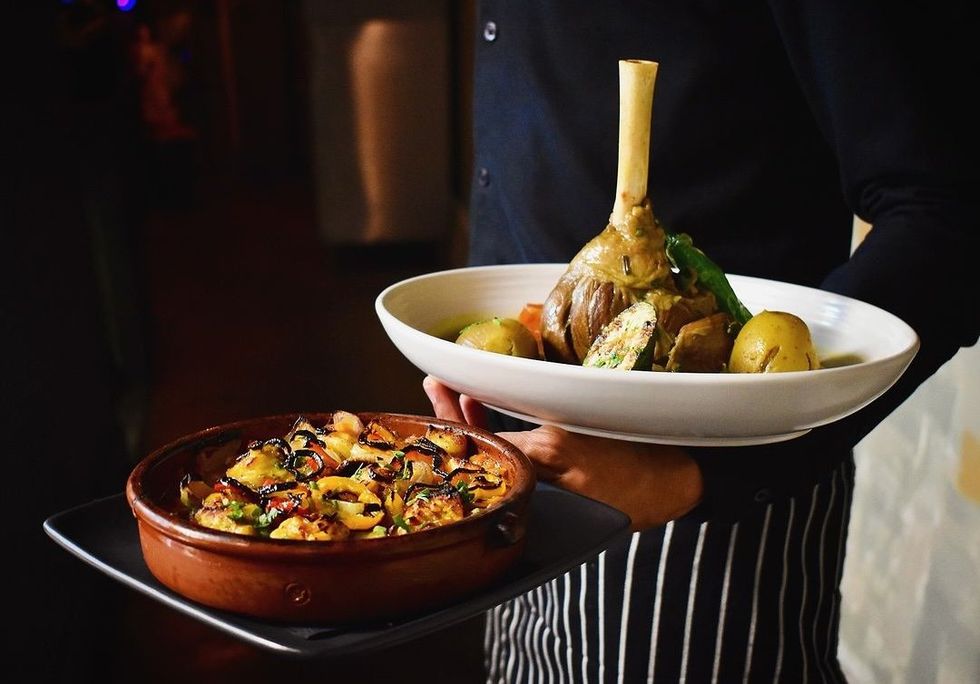
On the restaurant’s menu, Bouzidi tries to replicate the flavors he remembers from back home. Tabil, a golden spice mix made of sun-dried peppers, chiles, garlic, onions and other ingredients, is essential. It’s a key conspirator in several of Gola’s dishes, including their Tunisian deviled eggs, a symphony of heat and flavor in which halved hard-boiled eggs are filled with a traditional mix of roasted tomatoes, garlic and olive oil and topped with subtly smoky roasted shrimp.
Harissa, which was designated part of Tunisia’s Intangible Cultural Heritage by UNESCO in 2022, is just as, if not more, important. “There are 10 different types of harissa,” he says. “It’s not a condiment, we call it a dish.”
Then there’s shakshuka, an egg dish “everyone tries to claim” but which really originated in Tunisia’s Jewish community, explains Bouzidi. “A lot of people just use plain tomato sauce in their shakshuka but you can’t call it shakshuka unless it has potatoes and peppers.” At brunch—which is temporarily on hold while the team works out staffing—Gola’s comes in three rich, hearty, spice-accented varieties including one with lamb and beef sausage.
Because Tunisian cuisine is still novel to the Bay Area, some may see it as an “exotic, special occasion food.” But that couldn’t be farther from the truth, says Bouzidi.
Many of the dishes on Gola’s menu are interpretations of street food. The grilled branzino, for example, is served with kefteji, a flavor-punching mix of deep fried potatoes, zucchini, tomatoes, egg, and tabil. Others, like the oven-baked stews (tagines) served in ceramic gola, and the pillowy housemade flatbread, are frequently found on family tables throughout the country.
“There’s a lot Tunisian food can offer,” says Bouzidi, but “it’s an everyday food, as well.” He hopes the city will enjoy Gola the same way they do other Mediterranean restaurants, as a place that’s versatile enough for both a casual Tuesday night dinner and a Saturday night celebration.
// Gola is open 5pm to 10pm Tuesday through Saturday; 819 Valencia St. (Mission), golarestaurantsf.com.
